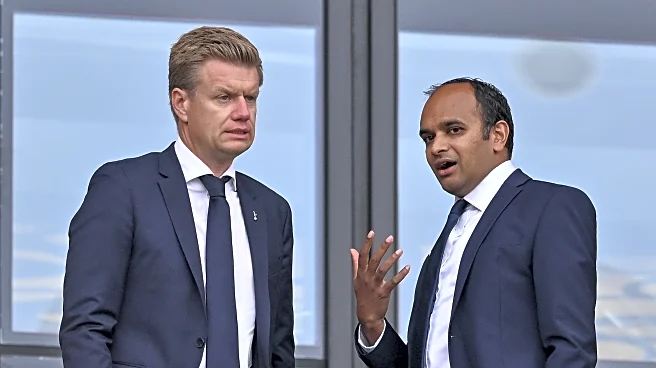What's Happening?
Ukrainian President Volodymyr Zelenskyy has proposed a significant purchase of approximately $90 billion in U.S. weapons as part of security guarantees discussed during a meeting with President Trump. The meeting, held outside the White House, focused on enhancing Ukraine's security amid ongoing tensions with Russia. Zelenskyy indicated that the details of these security guarantees would be finalized within the next 10 days, with further elaboration expected from international partners. This development marks a pivotal moment in trilateral talks involving Russia, Ukraine, and the United States, aiming to address the broader implications of the Russia-Ukraine conflict.
Why It's Important?
The proposed arms deal underscores the strategic importance of U.S.-Ukraine relations in the context of European security. By bolstering Ukraine's defense capabilities, the U.S. aims to deter further Russian aggression and stabilize the region. This move could significantly impact U.S. defense contractors and the geopolitical landscape, potentially leading to increased military presence and influence in Eastern Europe. The security guarantees also reflect a commitment to supporting Ukraine's sovereignty, which may influence future diplomatic engagements and alliances within NATO and the European Union.
What's Next?
The next steps involve formalizing the security guarantees and finalizing the arms purchase agreement. This process will likely involve detailed negotiations between U.S. and Ukrainian officials, with input from other international stakeholders. The outcome of these discussions could lead to enhanced military cooperation and strategic partnerships. Additionally, reactions from Russia and other European nations will be closely monitored, as they may influence the dynamics of regional security and diplomatic relations.
Beyond the Headlines
The implications of this development extend beyond immediate security concerns. It raises questions about the ethical considerations of large-scale arms deals and their impact on global peace efforts. The potential for increased militarization in Eastern Europe could lead to long-term shifts in international relations and defense policies. Furthermore, the focus on security guarantees highlights the ongoing challenges in achieving lasting peace and stability in the region.










